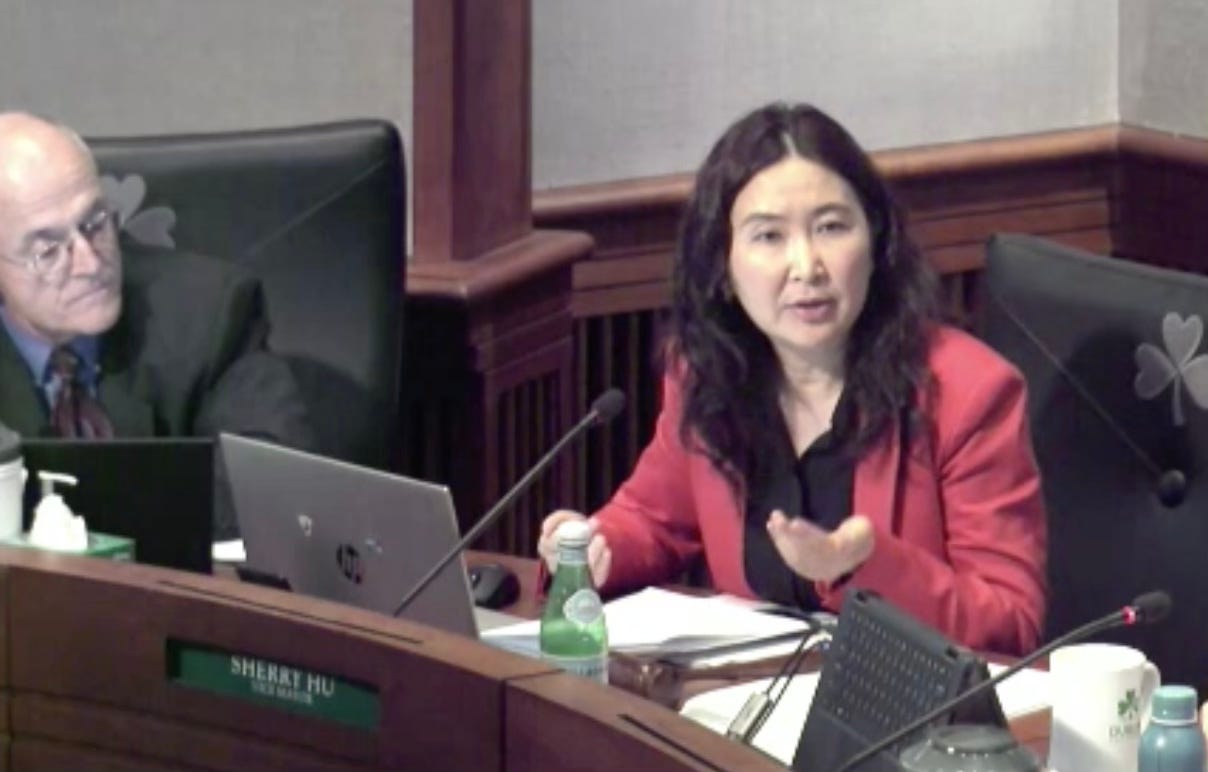East Bay's Top 10 Stories of 2024: Everything seems to be falling apart
It was a very bad year in Alameda County politics: Recalls, censures, councilmembers quitting, regional squabbles, and the specter of insolvency in Oakland
1. Price, Thao recalled
The recall of an Alameda County elected official is a rarity. It had not happened in Oakland for a century, and never at the county level. But recall fervor that began in 2023 reached a boiling point this year with the recall of Alameda County District Attorney Pamela Price and Oakland Mayor Sheng Thao. Curiously, the recalls were somewhat uncontested. Price raised money, but waged a campaign that was lackluster and often aimless. Thao’s campaign opposing the recall was lightly funded and never showed much spark. For both officials, the signature-gathering campaigns against Price and Thao were highly effective and well-financed. By the fall campaigns, public opinion against each was baked in. Crime is up and Price and Thao’s administrations were incompetent, their opponents believed. By November, roughly 60 percent agreed about both recalls. Much of the early part of 2024 will be about sorting out leadership at the DA’s office and the mayor’s office in Oakland.

2. FBI raids
The FBI raids on the morning of June 20 jolted politics in the East Bay. FBI, IRS, and U.S. Postal Service agents descended on Oakland Mayor Sheng Thao’s home; the home of Andy Duong, a co-founder of California Waste Solutions, the Oakland’s recycling vendor; along with the offices of California Waste Solutions and the Vietnamese American Business Association. Six months later, the FBI has not officially shed light on what they are investigating, but its appears to be a public corruption case that may be bigger than Oakland and ensnare elected officials in other jurisdictions. Thao said she is not the focus of the FBI’s investigation, but we’ll see. Federal agents raiding the home of a mayor in a mid-sized American city, does not occur without extreme contemplation by law enforcement. Much has likely occurred since the mid-summer raids. New information may have emerged. Those under investigation may have flipped. But expect the reasons for the raids to be publicly revealed sometime after the calendar flips. Be prepared. It’s going to be very bad.
3. Oakland’s fiscal cliff
Like the top two stories of 2024, Oakland’s worsening fiscal budget will spill deep into the new year. In December, Oakland officials moved around and discovered money to close a projected $129 million shortfall in the current fiscal year budget. To do so, they significantly cut overtime for an already short-staffed police department, and temporarily closed two fire stations. Keep in mind, the fiscal year is only halfway in the books and Oakland’s structural deficit will likely produce another huge shortfall sometime in the spring or earlier. On the periphery is a potential $105 million infusion of cash from the proposed sale of the city’s half-interest in the Coliseum to the African American Sports and Entertainment Group. However, that stash of cash was already supposed to be flowing into the city’s coffers, but has not.

4. Board of Supervisors delay, delay, delay
The moderate, business-friendly Alameda County Board of Supervisors has wielded its narrow 3-2 majority with aplomb. But their repeated use of various strategies to delay progressive agenda items has ground the board’s business to a snail’s pace while engendered anger from some supervisors and tenants in the unincorporated areas. Supervisors Nate Miley, David Haubert, and Lena Tam pressed the delay button in 2024 on high-profile issues such as the implementation of public oversight of the sheriff’s office and the creation of the Office of Inspector General. Passage of significant renters’ protections, in particular, have suffered after repeated delay tactics. A resolution supporting a ceasefire in Gaza faced a similar gauntlet of obstruction and died on the vine this year. In February, Supervisor Keith Carson equated the board’s moves to gridlock in Congress. “I’m really am concerned on a consistent basis that the politics that takes place in Washington, D.C.,” Carson said, “is starting to be the kind of politics we’re playing at the Board of Supervisors in Alameda County.”
5. Censures
Elected officials attempting to censure their colleagues occurs from time to time, but rarely do they lead to successful vote. Three elected officials in Alameda County were formally censured for various allegations of impropriety in just the past two months. The last time an Alameda County official was censured was 2013. San Leandro Councilmembers Fred Simon and Victor Aguilar, Jr. were rebuked for the very serious offense of violating the city charter’s non-interference rules, which forbids them from intruding on the city manager’s decision-making duties. Shortly after, Emeryville Councilmember Kalimah Priforce was censured for publicly disclosing closed session information, in addition to a failure to file campaign finance reports. In October, Fremont Councilmember Teresa Cox faced possible censure before Fremont councilmembers decided against kickstarting censure proceedings. The collective moves to censure suggest the wildly successful recalls campaigns have placed censure, once viewed as a “nuclear option,” squarely in the toolbox of potential options for accountability and political payback for elected officials.
6. Councilmembers quiet quit
The Great Resignation arrived in Alameda County politics with full-force in 2024. Four councilmembers abruptly resigned their seats, setting off scrambles to call special elections or make appointments. Berkeley Councilmembers Rigel Robinson and Kate Harrison announced their resignations within roughly the same month in early 2024. Both expressed disenchantment with the state of political discourse between themselves and the public, and among members of the city council. Newark Councilmember Mike Bucci, frustrated with an inability affordable housing, quit the council in order to find suitable housing elsewhere. Later in the year, Fremont Councilmember Jenny Kassan quit as the fall election season was in earnest to help her husband run for mayor. On her way out, Kassan attempted to torch the city and county’s establishment.
7. Alameda County Democrats gone wild and the liberal resurgence
In many ways the demise of Alameda County DA Pamela Price was linked to chaotic antics seen over the past two years at the Alameda County Democratic Central Committee’s monthly meetings. The central committee, which veered even further left than already deep blue Alameda County, showed itself out of touch with mainstream Democrats. The party voted to oppose the recalls. And while residents worried about crime, housing, and other pocketbook issues, the Alameda County Democratic Party focused on individual grievances, and tied their message almost exclusively to identity politics. Mainstream Democrats, many of whom are already elected officials, took notice of the mayhem and dominated the central committee’s March Primary elections. Price will remain on the central committee when the new group is sworn in this January, but she will have fewer allies. The Price dynamic and whether this new group actually returns calm to the central committee will be one of the things to watch in early 2025.
8. Demise of Regional Measure 4
For much of the year, officials at the city and county level were preparing for a potential windfall of much-needed funding to build and maintain affordable housing. A regional, nine-county, bond measure was being prepared to bring in an estimated $20 billion for affordable housing. Alameda County was due to receive $2 billion. Oakland was slated to receive about $750 million. But Regional Measure 4, as it was known, fell apart due to regional squabbles and polling that showed it would face difficulties on the November ballot. Bay Area officials pulled the plug on the measure in August and plan on resuscitating it in 2026. Bay Area tribalism is already undermining plans in 2026 for a regional transportation bond measure to shore up BART and other transit agencies.
9. Rise of minority-majority power in Fremont, Dublin
In terms of diversity, Alameda County politics is second to none. But Fremont’s minority-majority of Asian and South Asian residents have historically failed to parlay people power into majorities on the city council. That changed in the November election. Fremont elected Raj Salwan, the city’s first Indian American mayor. Salwan leads a city council with a majority of four Asian American councilmembers. In addition, Union City elected Gary Singh, the city’s first Sikh mayor. Over in Dublin, the election of Sherry Hu as the city’s first Asian American mayor made it clear the influx of highly-educated, highly paid Asian American and Indian Americans in East Dublin are flexing their political muscle. The successes of Fremont and Dublin could begin to shift the balance of power in Alameda County to east and south county over the next decade.
10. Spencer drunk on police body-cam video
Alameda Councilmember Trish Herrera Spencer’s drinking habits have long been an open secret. But few could ever imagine the shocking police body-camera footage showing Spencer drunk on a sidewalk in Long Beach, Calif. News of Spencer’s escapade at the city-paid League of California Cities Convention came just three weeks before Election Day. Video of the incident was uploaded for public consumption a week later. Spencer did not remember the incident and claimed she was a victim of assault. The Alameda City Council nearly rebuked Spencer for her actions. Spencer lost re-election to a second term on the city council and missed four consecutive meetings before reemerging two weeks ago for her final meeting. If you think Spencer is the only elected official in this county using taxpayer-funded trips for various types of personal debauchery, you would be sadly wrong. It’s a growing problem that needs to be addressed.



















